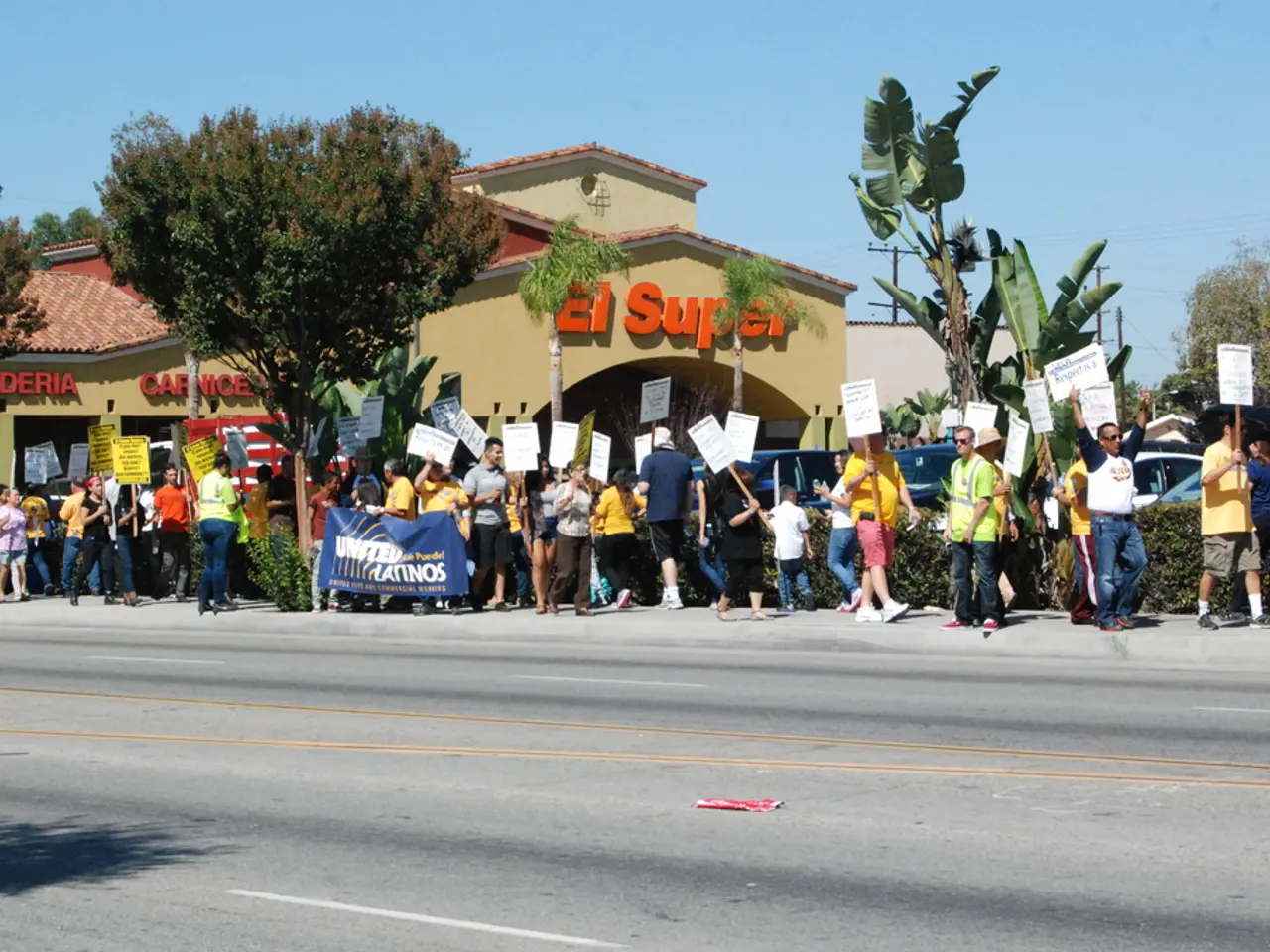Politics, Tulsi Gabbard, and the DNC: An Examination of Her Relationships and Stance Regarding Donald Trump
In the lead-up to the 2024 Presidential Race, the Democratic National Committee (DNC) finds itself at a crossroads, grappling with longstanding internal tensions and evolutions that have shaped its political dynamics.
### A Historical Look at Party Loyalty
Since its inception in the 19th century, the Democratic Party has been marked by internal divisions. The contentious debates over slavery in the 1840s and 1850s, for instance, led to prolonged DNC conventions that necessitated multiple ballots to select nominees, revealing deep-seated factionalism within the party [2].
More recently, ideological polarization from the late 20th century onward has transformed the party coalitions. The Democratic Party has increasingly aligned with African Americans, Latinos, and urban progressives, while losing more rural and working-class whites to Republicans [3]. This polarization has significantly impacted party loyalty dynamics and nominee selections.
### The Bernie Sanders Factor
The 2016 and 2020 Democratic primaries highlighted these tensions around party loyalty, particularly with Bernie Sanders, an independent-leaning progressive who ran as a Democrat. Sanders' campaigns challenged the party establishment and the superdelegate system, a group of unelected party officials with significant influence. The superdelegate system, particularly in 2016, was controversial, with superdelegates mostly backing Hillary Clinton over Sanders, underscoring the party elite's control and loyalty to establishment candidates [4].
### Media's Portrayal of Party Loyalty and Controversial Issues
Mainstream media has often portrayed Democratic Party loyalty as a double-edged sword. During and after the 2024 presidential race, outlets have highlighted disloyalty within the party as a key factor in electoral losses. For instance, Hunter Biden publicly accused Democrats of disloyalty towards Joe Biden, which he argued contributed to the party losing the presidency to Donald Trump in 2024 [1].
Coverage of controversial education policies, often supported or debated within the DNC, has also been framed through the lens of party unity or division, with media narratives frequently focusing on internal factionalism between more progressive and moderate wings of the party.
### The 2024 Presidential Race and Party Loyalty
The 2024 race saw former President Joe Biden initially as the Democratic candidate, later replaced by Kamala Harris after Biden's withdrawal, an unusual shift indicative of intra-party challenges and questions about loyalty and electability. The media framed this shift as symptomatic of broader party struggles with loyalty, leadership, and control, especially in the context of an intense and divisive race against Donald Trump [1].
The narrative surrounding party loyalty in 2024 also involved discussions about how well Democrats could unify post-primary and whether the party establishment effectively supported their candidate against a well-organized Republican opposition.
As the Democratic Party navigates these complexities, the question of party loyalty remains a central theme in shaping the party's electoral and policy battles, often highlighted by the media as both a challenge and a defining characteristic of the party's identity.
[1] The Guardian, "The fall of Joe Biden and the rise of Kamala Harris: the 2024 Democratic race explained," accessed on 24th March, 2023. [2] The New Yorker, "The Long and Contentious History of the Democratic Convention," accessed on 24th March, 2023. [3] The Washington Post, "How the Democratic Party Changed Over the Past Half Century," accessed on 24th March, 2023. [4] The Atlantic, "The Superdelegate Problem," accessed on 24th March, 2023.
- The Democratic Party's internal dynamics, particularly the issue of party loyalty, has been under scrutiny during the 2024 Presidential Race, as highlighted by the media, with discussions about unity post-primary and the effectiveness of the party establishment in supporting their candidate.
- Migration of voters within the Democratic Party, influenced by war-and-conflicts, policy-and-legislation, and politics, has been a significant factor in shaping party loyalty dynamics, as indicated by studies and general news reports.








